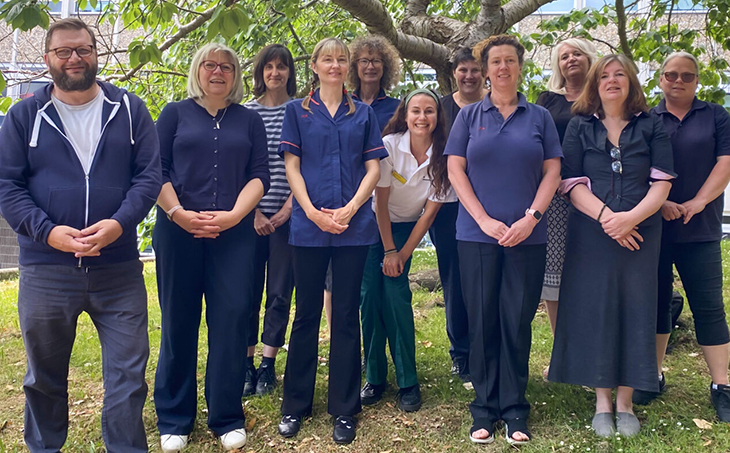Rehabilitation is a complex process that requires a multi-faceted approach. The London Community Rehabilitation Company (CRC) has long recognized that to effectively support offenders in reintegrating into society, a collaborative effort is essential. By working closely with local communities, charities, businesses, and other organizations, London CRC creates a robust network of support that helps individuals not only stay out of prison but also build meaningful, productive lives. This article explores how these partnerships work and why they are so crucial to the success of offender rehabilitation.
The Importance of Collaboration in Rehabilitation
Rehabilitation is more than just serving time; it’s about addressing the underlying issues that led to offending behavior in the first place. These issues are often complex, ranging from substance abuse and mental health problems to lack of education and unemployment. No single organization can tackle all these challenges alone. This is where collaboration becomes vital.
London CRC understands that effective rehabilitation requires addressing these root causes holistically. By partnering with various local organizations, they can offer a comprehensive range of services that go beyond what any single entity could provide. These partnerships ensure that individuals receive the tailored support they need to overcome their specific challenges, making it more likely that they will successfully reintegrate into society.
Key Partnerships that Drive Success
London CRC has established numerous partnerships that are central to its rehabilitation efforts. These collaborations span across various sectors, including housing, employment, mental health services, and community support. Here are some of the key partnerships that have been particularly impactful:
- Housing Associations and Charities Stable housing is a critical factor in reducing reoffending. Without a safe and secure place to live, offenders are more likely to fall back into criminal behavior. London CRC partners with housing associations and charities to help individuals secure accommodation upon their release. These organizations provide temporary housing solutions and work with offenders to find long-term housing, helping them establish a stable foundation from which they can rebuild their lives. For example, partnerships with organizations like St. Mungo’s and Shelter have been instrumental in providing immediate housing assistance. These organizations also offer additional support, such as financial advice and access to social services, ensuring that individuals have the resources they need to maintain their housing.
- Employment and Training Providers Gainful employment is another critical component of successful rehabilitation. Finding a job not only provides financial stability but also helps individuals build self-esteem and a sense of purpose. London CRC collaborates with local businesses and training providers to help offenders develop the skills they need to enter the workforce. Initiatives such as the “Unlocking Potential” program, run in partnership with local employers, offer tailored job training and work placements. These programs focus on equipping individuals with skills that are in demand in the job market, increasing their chances of finding stable employment. Additionally, CRC’s collaboration with organizations like the Prince’s Trust provides young offenders with mentoring and career guidance, helping them navigate the often-challenging path to employment.
- Mental Health and Substance Abuse Services Many offenders struggle with mental health issues or substance abuse, which can be significant barriers to successful rehabilitation. London CRC works closely with mental health services and addiction support organizations to address these issues as part of the rehabilitation process. Partnerships with organizations like Mind and Turning Point allow London CRC to provide offenders with access to counseling, therapy, and support groups. These services are tailored to meet the specific needs of each individual, whether they require intensive therapy for severe mental health conditions or ongoing support to maintain sobriety. By addressing these issues head-on, CRC helps reduce the likelihood of reoffending and promotes long-term recovery.
- Community and Voluntary Organizations Engaging with the community is an essential aspect of rehabilitation. Community and voluntary organizations play a vital role in helping offenders reconnect with society. London CRC partners with these organizations to provide a range of activities and programs that foster social inclusion and community engagement. For instance, partnerships with local community centers and volunteer groups offer opportunities for offenders to participate in community service projects, social events, and educational workshops. These activities help individuals build positive relationships, learn new skills, and develop a sense of belonging, all of which are crucial for successful reintegration.
The Impact of Collaboration
The collaborative approach taken by London CRC has had a significant impact on the success of its rehabilitation programs. By leveraging the expertise and resources of its partners, CRC can provide a holistic package of support that addresses the diverse needs of offenders. This comprehensive approach not only helps individuals stay out of prison but also empowers them to lead fulfilling lives as productive members of society.
Furthermore, these partnerships benefit the community as a whole. By reducing reoffending rates, CRC’s work contributes to safer neighborhoods and a more stable society. The success stories that emerge from these collaborative efforts serve as powerful examples of how rehabilitation, when done right, can transform lives.
Conclusion
Rehabilitation is a journey that requires more than just individual effort; it demands the collective support of the entire community. London CRC’s collaborative approach, working in tandem with local organizations and partners, is a testament to the power of teamwork in driving positive change. As these partnerships continue to grow and evolve, they will remain at the heart of London CRC’s mission to support offenders in reintegrating into society and rebuilding their lives.
